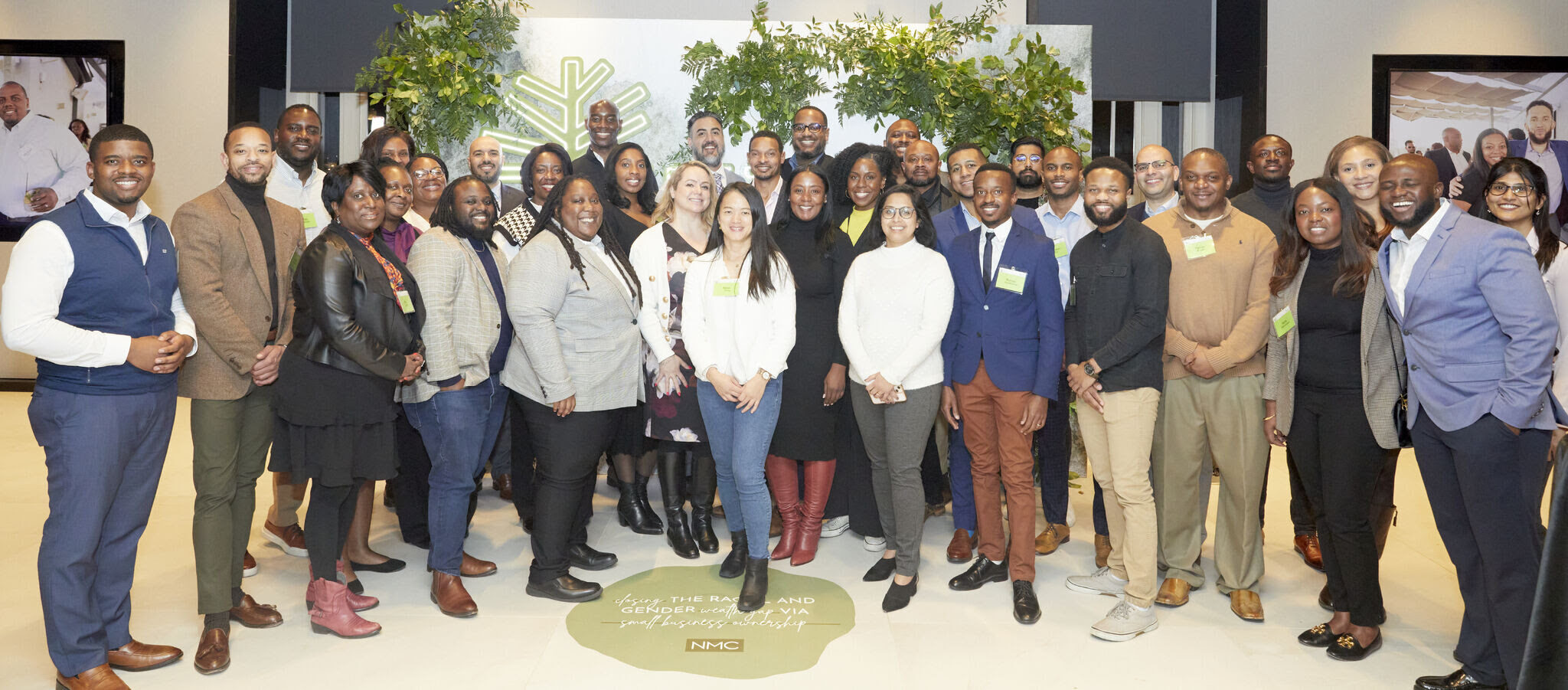Worker ownership is becoming more common, as worker-owned cooperatives — and investment funds looking to support them — multiply. Less so: worker-owned holding companies with multiple businesses in their fold.
Obran Cooperative calls itself the “first worker-owned cooperative conglomerate.” The Baltimore-based firm offers worker-owners control of the business operations of a conglomerate, much like the kind of power private equity investors would have over businesses in their buyout portfolios.
“Our idea of ownership is that it’s not just enough just to cut somebody in,” Obran’s Joseph Cureton told ImpactAlpha. “It has to allow them to shape their own destiny, with a fundamental right of stewardship and the ability to actually create value and wealth, and then own it and reap the benefits.” The cooperative owns a half-dozen companies in sectors ranging from healthcare to staffing.
Obran was initially founded in 2019 as the Staffing Cooperative by the workers of Core Staffing, a temporary job-placement cooperative of previously incarcerated workers, and members of the Bmore Black Techies meetup who came together to found Tribeworks, a digital creative services company.
San Francisco-based Acumen America, a US-focused impact fund management spinoff of global impact investor Acumen, has made a $500,000 investment in Obran, structured as debt rather than equity, given the equity ownership structure in place.
“We’ve been looking at the work and wealth inflection point for some time and have gotten really excited about the impact opportunity of employee ownership,” says Acumen America’s Amon Anderson. “What attracted us to Obran’s worker-owned cooperative is that all of the workers have an equal share and become a part of this larger universe of operating businesses all underneath the Obran umbrella, with direct ownership and agency in the workplace.”
Obran acquires small and mid-sized impactful and profitable businesses, transitioning them to 100% employee ownership through its worker co-op structure. It owns and operates six companies in sectors including healthcare and logistics that employ some 450 workers in the US.
Portfolio companies include Appalachian Field Services, a home renovation and real estate development cooperative managed by workers recovering from substance abuse. In 2022, Obran acquired Apollo Home Healthcare, a California-based home health agency that targets predominantly Medicare and Medicaid patients, for $20 million.
The firm finances the deals with its Obran Acquisition Fund, a $30 million-target acquisition debt fund backed by roughly $3.5 million from Momentus Capital, the University of Maryland Medical System and Seed Commons, a New York-headquartered community wealth cooperative and community development financial institution, or CDFI.
“We’ve been raising quietly for a little bit, and that fund is designed specifically to close the financing gap when it comes to doing the transactions,” says Cureton.
In select deals, Obran has the ability to bring on equity investors to finance the conversion of a subsidiary business, but only if it’s in the best interest of the cooperative. Such equity holders would have to agree to a buyout from the employee owners in the future.
Ownership structure
Workers in Obran’s subsidiary companies are eligible for an ownership stake in the holding company after a 90-day period. To become an owner, workers may buy in with a $250 ownership share and commit 1% of each paycheck from there on.
“This is their investment in the co-op ongoing,” says Cureton, and that “gives them access to the profit-sharing and [other] benefits,” such as the facilitating of corporate governance power.
As owners, workers can vote on certain issues pertaining to the cooperative, run and/or elect their peers as board members. Payout to workers is facilitated through a “patronage dividend” correlating with their hours if Obran turns a profit.
Cureton says Obran is profitable and aims to hit $100 million in total revenue over the next 12 months.
Other cooperatives have banded together for greater economic might, including Spain’s giant Mondragon Corp., the Evergreen Collective in Cleveland, and the Bay Area’s Arizmendi Association of Cooperatives. Cureton differentiates the “cooperative conglomerate” model from those groups, which are structured more as federations of cooperatively owned businesses.
“Instead of the idea of federated association of small businesses, where you might pay a fee, our idea is taking a page out of the book of large conglomerated businesses — think publicly traded companies and multi-divisional business — and use those tools, those levers, to impact social and economic justice,” he says. “We are one consolidated business.”
Institutional partners
The investment from Acumen America will enable Obran to unlock growth capital and build partnerships, like with US healthcare giant Kaiser Permanente that has opened up to Obran and LA-based Project Equity its data book of suppliers, which includes approximately 3,000 small businesses that could potentially convert to employee owners in upcoming years.
That list has helped Obran to build “a pipeline of acquisition targets,” says Cureton, and “we’re currently moving forward on three of them at the moment.”
With partners like Kaiser and other mission-aligned health systems that are looking to drive more equitable ownership, Cureton says there’s a “real opportunity” to create ownership access to workers, through structures like the worker co-op.
However, “it’s more than just giving us a list to go and educate. It’s talking to us about purchasing and procurement trends, talking to the Treasury Department about financing vehicles and building out some of the case for us internally.”











